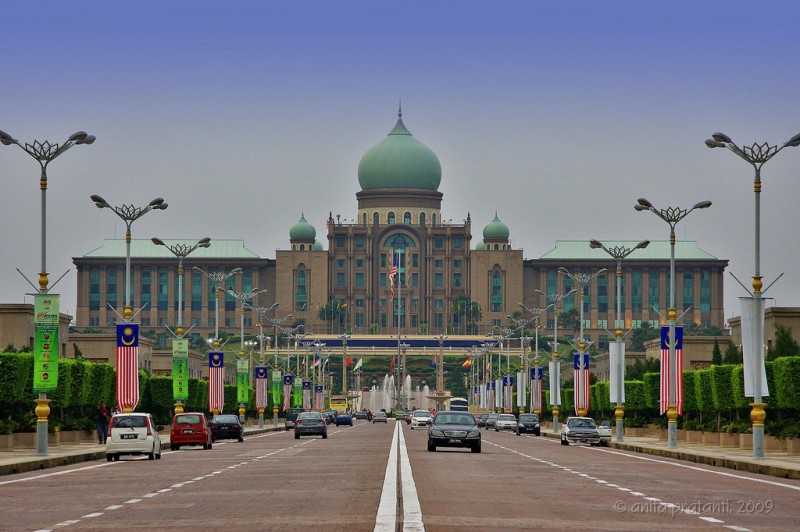Twenty-five former senior civil servants in Malaysia have signed an open letter urging the government to conduct a peaceful dialogue about the application of Islamic laws in the country. The letter received widespread support, especially from those who feel that religious intolerance is rising in Muslim-dominated Malaysia.
In recent years, powerful leaders inside Malaysia’s ruling coalition have successfully lobbied for the expanded and strict implementation of Islamic laws in the country. They also have mobilized state resources against perceived threats to Islam.
The letter raised several issues concerning what they think is the excessive and unfair application of Shariah law in many aspects of governance:
We refer specifically to the current situation where religious bodies seem to be asserting authority beyond their jurisdiction; where issuance of various fatwa violate the Federal Constitution and breach the democratic and consultative process of shura [decision-making]; where the rise of supremacist NGOs accusing dissenting voices of being anti-Islam, anti-monarchy and anti-Malay has made attempts at rational discussion and conflict resolution difficult; and more importantly, where the use of the Sedition Act hangs as a constant threat to silence anyone with a contrary opinion.
They asked Prime Minister Najib Razak “to assert his personal leadership” to “champion open and coherent debate and discourse on the administration of Islamic laws in this country.” They added:
As Muslims, we want Islamic law, even more than civil law, to meet the highest standards of justice precisely because it claims to reflect divine justice. Therefore, those who act in the name of Islam through the administration of Islamic law must bear the responsibility of demonstrating that justice is done, and is seen to be done.
The letter quickly became popular and it inspired other “moderate” voices to speak out against religious and racial discrimination. A total of 93 NGOs declared support for the 25 retired high-ranking civil servants. They were joined too by the Malaysian Consultative Council of Buddhism, Christianity, Hinduism, Sikhism and Taoism, which praised the group for drafting the letter.
The Twitter hashtag #KamiJuga25 (We are also 25) was used by many Malaysians to show solidarity to the “prominent 25”. A #KamiJuga25 petition was also circulated on Change.org:
We cannot and must not stand silently by and allow faith to be misused as a weapon to suppress peaceful dissent, intellectual discourse and opinions and to oppress those who would challenge and support contrarian positions. It is unjust and we should never tolerate the use of faith to divide us.
A more popular online petition used the hashtag “I am #26” in support of the stand taken by the group of 25 “by standing together in solidarity as #26.”
From ‘I Am 26′ To ‘#KamiJuga25‘, The Voice Of Moderation Is Roaring Louder: http://t.co/bfxhlEN99p #iam26 #moderation pic.twitter.com/gqUxuhZyNw
— Latest on SAYS (@saysdotcom) December 18, 2014
Justin Ong of online newspaper Malay Mail Online described the act of the group as brave and appropriate:
Brave because it comes at a time when anything and everything is considered seditious or insensitive, when people go out of their way to see offence where none is intended or, worse, exists.
Appropriate because there are sections of the country that appear intent on embracing ever more strict rules on religion for hardly pious reasons and without regard for the possible consequences.
Zurairi AR, also from Malay Mail Online, echoed the questions raised by some Malaysians to the group of 25:
Why now? Why not before Malaysia went down this route?
How much did they do when they were in the system? Were they speaking from a position of regret?
But he also recognized the importance and impact of their letter sent to the government:
Not only are they contributing by providing alternative views against the conservatives, but they are also making their views prominent by virtue of their standing.
When someone like the prominent 25 speak up, they send a message that not only are those views acceptable, but there are decent people backing them.
The open letter has sparked a discussion about the role of religion and governance in society. Hopefully, it will encourage the enactment of reforms in applying Islamic laws in Malaysia.








1 comment
It is about time Malaysians stand up their rights.